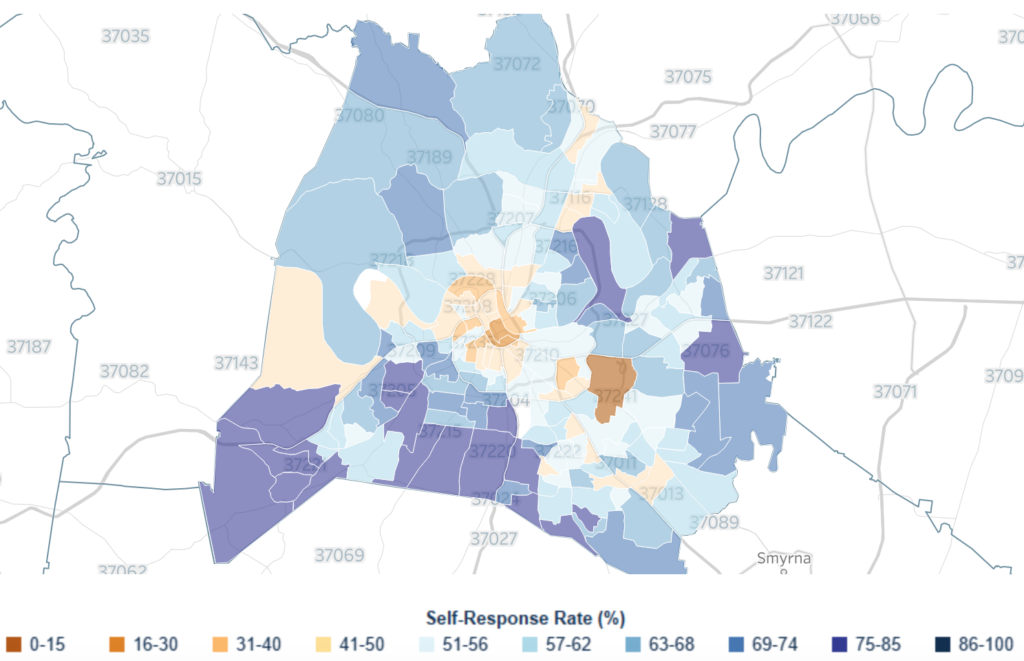
The 2020 Census has been counting us since March, and overall Tennessee’s self-reporting rate is about on par with the national average.
Some communities in Nashville currently have a lower response rate, though, so efforts are underway to emphasize the importance of responding — and to reassure these communities that the census is to their benefit.
Multi-generational households, people of color, people experiencing homelessness and those living at the lower end of the economic spectrum are some communities considered harder to count.
Metro Council Member Sandra Sepulveda represents the largest Latino population in Nashville.
“I know that many of us have been afraid that our information can be used against us,” she says. “It cannot be used against you. The census is confidential. We need to make sure that we are counted because we need to make sure that we have a better future for our children and for those that come after us.”
There are many reasons someone may be resistant to providing information about their lives, says June Iljana with the U.S. Census Bureau. It could be that they are worried about it being shared with immigration or law enforcement — or even that their honest responses could violate lease terms.
Areas of downtown, North Nashville, South Nashville and some parts of Antioch currently all have response rates of under 50%
But census numbers are used to distribute federal funding, and the population totals help determine important legislative representation, including how districts are drawn.
“The census determines how many seats will be allocated in the House of Representatives, and used to draw congressional and state legislative districts,” says Edward Thompson, chair of the nonprofit Nashville Organized for Action and Hope, or NOAH. “The census supports democracy. It is a vote for truth and justice.”
So NOAH is reaching many of these undercounted communities. They’re spreading the word about the census’ importance through a series of banners and bus benches, as well as Facebook videos, and a phone bank that has already contacted several thousand people.
The 2020 Census is rolling through the end of October and for the first time in history people can respond online at my2020census.gov.

